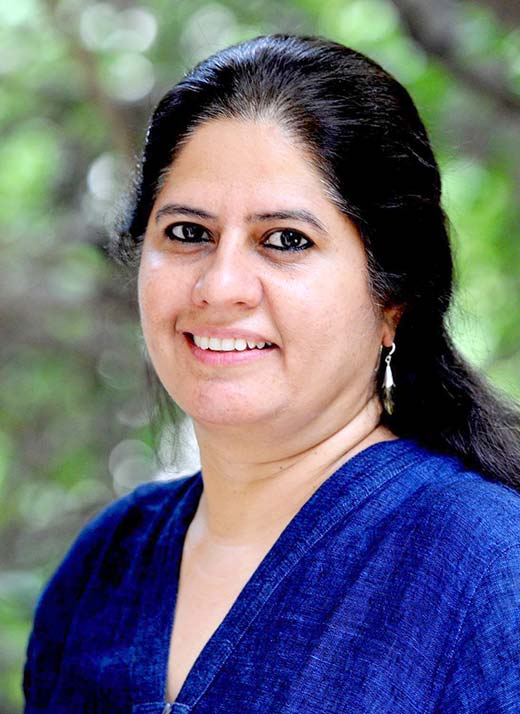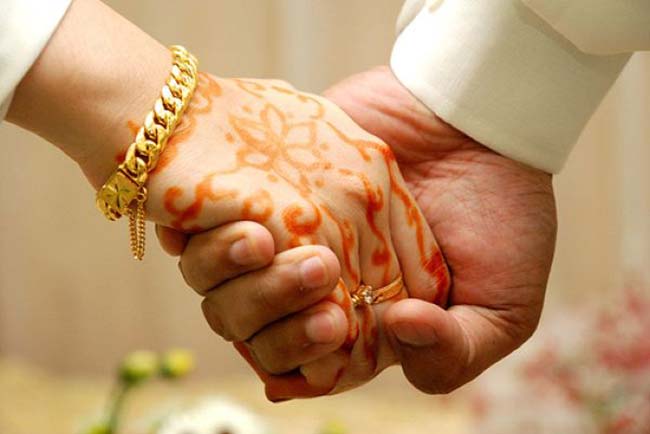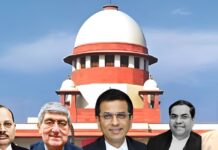Vrinda Grover, a New Delhi based lawyer, researcher, human and women’s rights activist tells Safwat Zargar that people of India will face consequences for allowing army a say in public affairs in Kashmir
 Kashmir Life (KL): What brings you to Kashmir?
Kashmir Life (KL): What brings you to Kashmir?
Vrinda Grover (VG): I come to Kashmir very often. I work in close association with APDP which is led by Parveena Ahangar and I think there are many grave injustices and human rights violations which are taking place in Kashmir for many decades now. As a lawyer and as a human right activist, I am associated with families who have been fighting against enforced disappearances.
KL: How do you view the current situation in Jammu and Kashmir today?
VG: Well, I would view it from the lens and frame of law and justice itself. I think what is happening is that impunity which we have seen being very common place here for every case. I have done a fact finding for instance into the Shopian murder and rape cases and I have been looking at enforced disappearances. I was part of a group which did report on the 2010 killings and many of which are extra judicial killings. I thing in all of them there is one common thread; complete and absolute impunity for any person who belongs to the state security forces or the army or the police from any form of accountability. And in a place where injustice is the only form in which people are experiencing actions of the state, it is bound to have very serious repercussions in the socio-political milieu.
KL: With the change of government at centre, do you expect any change in the status quo of lawlessness and impunity in Kashmir?
VG: I would be very surprised if anything would change because of the change at the centre. I have been actively engaged with cases in Gujarat, where again we have fought for justice and there is impunity in those cases too. The government in power today, has actually reinstated into power those people, who have been charge sheeted for fake encounters and murders. Despite that, they have been given very prominent positions in government and political parties who are in power. Keeping that in view, I do not have any expectation of justice from such a regime.
KL: How do you see the working of human right organizations like APDP for justice in Kashmir?
VG: I really think it is a very important struggle. For instance the sit-in protest that APDP does once a month, year after year when those women sit down, I think that is something that challenges the government. That they are not going to forget their sons/husbands/brothers/relatives who disappeared 10 or 20 years ago. The urge for justice will persist and the struggle for justice will still continue, and I think that is the real challenge to the Government, they pose.
KL: Recently, noted Indian historian Mridu Rai was here. In her interaction, she said, “Kashmiris can never get justice from India, and if they will, they will get it in the form of AFSPA and PSA. You can raise the voice for justice only to expose the state, but you can’t seek justice from it which will only legitimize the state institutions.” How far do you agree with her?
VG: I think there are many ways of engaging with it. I have engaged with the issue of law in many domains whether it is Gujarat or other places including Muzaffar Nagar where recently communal violence broke out. I do agree that the paradigm of Kashmir is very different and distinct and they should not blur that distinction. It is the political and historical distinction and the distinction should be maintained which I completely agree with. However, I think there are different ways in which we use law. I see the space of law the legal challenge that we pose whether through public campaigns or through court processes, as ways in which we expose systems; we expose the courts, we expose the laws, we expose the façade that the government puts out of rule of law. We contest the narrative that the rights of people are protected under these regimes and I see courts as an important arena where we challenge and contest this. I do not think we strength, we show the true face of the institution.
KL: Don’t you think you can do that to a certain limit and not beyond that?
VG: I think it is how you combine your political advocacy, your public advocacy, say on the issue of enforced disappearances along with taking such steps, particularly when you are working with in a political regime of a kind that the Indian state is. I think every institution needs to be challenged constantly.
KL: You have fought few cases of Kashmiris in Supreme Court who were first dealt with here? How much vibrant is judiciary in Kashmir?
VG: Well, I can only read from what I saw in the cases that happened and one or two cases that I have been asked to handle them in Supreme Court after been dealt with here. I think there is a mixed background and I think at times, particularly the judiciary of Kashmir, knows what the situation is, after all they are part of it, they experience the life here, their families live here, they live here. When you raise the same issue of Armed Forces Special Powers Act (AFSPA) or you raise the issue of an atrocity committed by an army force personnel in the Supreme Court of India the understanding and grasp of that in Indian Supreme Court is almost negligible. For them, the army is very important institution and very honorable institution. They do have not experienced the kind of atrocity and violation that the judiciary here has. I think that makes some difference in how they approach the cases and the manner in which they would like to give relief. However to a very large extent the law itself is the problem and the law is loaded against the people and then the judiciary hands here also, will be bound.
Let us take a very small example of the case of a young boy Zahid Farooq who in 2010 February in Nishat was shot dead, I fought in Supreme Court. In all the cases like these the army was repeatedly saying that we will take the case for court martial. Now, over here people know that court martials are not fair trials and army courts are not places where you get justice, however in the Indian Supreme Court, court-martial is seen from a very different angle. I also think to a larger extent it comes out your own interface and experiences with violations.
KL: How can that be brought to balance so that people engage in approaching Indian judiciary through a different angle all together?
VG: I think it is through the work here lot of activists and groups are doing. It is important to constantly raise the issues which the mass media does not. Whether it is electronic or the print media in India, the only news that we hear of Kashmir is some alleged terrorists have been killed in an encounter or if somebody has been killed. That is the only breaking news that we get or that makes one little line. But what is the way of life? What is the humiliation? The indignity that every Kashmiri is experiencing whether they are going to work, office or going to study, that is not an experience anyway experienced or understood there and it is important for those issues to constantly be raised. I think a lot of young people today in Kashmir through their writings, books, analysis, films, are bringing it to the people of India that they have to reckon with what is happening here.
KL: What can Indian civil society and activists do in bringing up the realities of Indian state in Kashmir to the Indian public?
VG: I think we have an ethical political responsibility to stand in solidarity and I don’t think the struggle is only of the people of Kashmir. I think we need to fulfill the issue of human rights and human rights doesn’t stop at you national borders and human rights is not subordinate to patriotism. Patriotism is strengthened by complying with human rights.
KL: Indian Army has been engaged in various “cultural and religious” operations which it calls to “win the hearts and minds of people,” in Kashmir. Is it an indicator that army is widening its operations and delving in the matters, that are otherwise the domain of civilian administration in Kashmir?
VG: I have a very strong view that this is not the job of the army. What army is doing in Kashmir is insidious. The army’s job is to protect the borders of the country and it should not be allowed to come into these matters at all. According to me, not only is this insidious what army is trying to do within Kashmir society, but if we as Indian people are going to keep quiet about this. This is not going to end only here. Once you are going to allow army to have a say in many matters in your country. The people of India will face consequences of this later also.
KL: How do you see the discourse of “governance and development” relevant to an issue like Kashmir? Is it a remedy?
VG: I don’t agree with that at all. Even in India also, we listen rubbish of good governance, here they did talk of governance and development. Justice and rights of people are at the heart of any governance. We have to address those issues first otherwise there is no meaning about governance at all.















